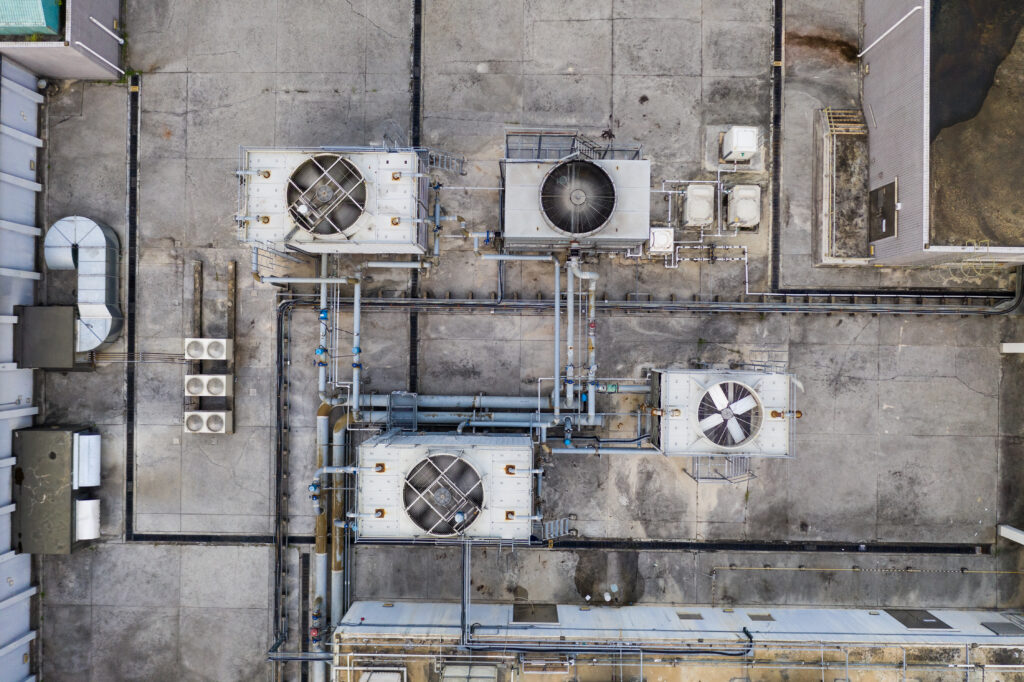WF International Limited (NASDAQ: WXM), a little-known but profitable HVAC engineering and installation firm operating in western China, is preparing for its U.S. IPO on April 1. At a modest $4.00 per share, this microcap debut on the Nasdaq Capital Market brings to public investors a rare opportunity to gain exposure to China’s urban infrastructure expansion through a company with real revenue, tangible assets, and a proven operational track record.
With a client base rooted in high-end real estate development and growing ambitions across energy-efficient building systems, WF International offers long-term potential as both a regional market leader and a beneficiary of supportive policy trends in China’s post-reform real estate sector.
Solid Foundation in Urban Infrastructure Services
WF International operates through its wholly owned Chinese subsidiary, Chengdu Shanyou HVAC Engineering Co., Ltd., which has been in business since 2009. The company specializes in the design, procurement, installation, and maintenance of HVAC systems, floor heating infrastructure, and water purification technology.
Headquartered in Chengdu—the capital of Sichuan Province and one of China’s fastest-growing second-tier cities—WF serves both residential and industrial developers seeking fully integrated, turnkey solutions. The company has participated in projects across notable commercial and residential developments including Raffles City, International Finance Square, and the Chengdu Metro system.
In recent years, WF has evolved from subcontractor to solution provider, now bundling services in electromechanical systems to drive efficiency, retain customers, and improve margins. Its shift toward premium equipment sourcing and downstream service agreements positions it for repeat business and broader revenue capture.
Financial Performance Reflects Stability and Execution
Unlike many microcap IPO candidates, WF International enters the public markets with a track record of profitability.
For the fiscal year ended September 30, 2024, the company reported $15.5 million in revenue, an increase from $15.3 million in 2023. Net income was $1.0 million, down slightly from $1.5 million the previous year, due to broader softness in China’s property markets. Even so, the company maintained profitability, achieved an 18.6% gross margin, and generated consistent cash flows—all without relying on external financing.
Customer concentration remains moderate, with the top three clients accounting for just over 51% of annual revenue, and Toshiba HVAC systems representing roughly 39% of procurement. While this concentration presents some operational risk, management has outlined steps to diversify both its customer base and equipment partnerships over the next two years.
Proceeds Target Expansion and Vertical Integration
WF International expects to raise approximately $5.2 million in net proceeds from the IPO. The company intends to use the capital to:
- Acquire HVAC distributor businesses with exclusive or preferred licenses from global brands;
- Expand retail installation services and smart-home product offerings;
- Enhance technology platforms for project delivery and back-end operations;
- Recruit technical and engineering staff to support growth in new markets.
A $300,000 indemnity escrow account has also been established to fulfill post-IPO obligations, signaling the company’s effort to mitigate downside risks for investors and underwriters alike.
Strategic Positioning in China’s Urban Development Cycle

WF’s geographic concentration in Chengdu and neighboring cities places it in a unique position to benefit from renewed investment in modern, energy-efficient housing and infrastructure. As of 2024, Chinese policymakers have implemented reforms to revive quality housing development—lowering down payment requirements, encouraging new construction, and promoting sustainability initiatives in the built environment.
WF’s focus on fully furnished, higher-end real estate aligns well with these trends. Its bundled engineering services model enables project managers and developers to engage with a single contractor from design through post-installation service, reducing coordination risk and elevating the client experience.
While the broader real estate market in China continues to recover gradually, pockets of strength in Tier-2 and Tier-3 urban centers—particularly for quality-driven construction—offer significant runway for WF’s expansion.
IPO Mechanics and Governance
The offering consists of 1.4 million ordinary shares priced at $4.00, with an additional 210,000 shares available to underwriters via a standard over-allotment option. At the midpoint, WF’s implied post-offering valuation stands at approximately $27.6 million.
Founder and CEO Ke Chen will retain majority control of the company with roughly 56% of voting power following the offering (or 54% if the over-allotment is exercised). WF will be classified as a “controlled company” under Nasdaq rules, although the firm has stated it does not plan to rely on governance exemptions at this time.
U.S.-based auditing firm ZH CPA, LLC—located in Denver and subject to PCAOB oversight—provides the company’s audited financial statements, helping reduce the risk of future delisting concerns under the Holding Foreign Companies Accountable Act (HFCAA).
Furthermore, WF completed its registration with the China Securities Regulatory Commission (CSRC) in April 2024, satisfying new requirements for overseas IPOs by PRC-linked businesses.
Risk Considerations in Context
As with any foreign microcap, investors should carefully weigh certain risks:
- The company is entirely dependent on PRC subsidiaries and operates in a sector subject to regulatory, supply chain, and demand fluctuations.
- Its Cayman Islands holding structure introduces additional legal and tax complexity.
- Internal control weaknesses—specifically in accounting staff resources—were identified in past filings, though steps toward remediation are underway.
- Thin post-IPO float and low trading volume may result in volatility or difficulty establishing long-term positions for institutional investors.
However, WF’s willingness to comply with both Chinese and U.S. regulatory requirements, maintain profitability pre-IPO, and invest in scalable expansion strategies makes it more compelling than many similar small-cap entrants to the Nasdaq.
Conclusion: A Small-Cap Play on Real Earnings and Infrastructure Tailwinds
WF International represents a rare microcap IPO that is grounded in fundamentals. The company is profitable, operationally mature, and aligned with long-term infrastructure, urbanization, and energy efficiency trends in China. While risks tied to jurisdiction, governance, and market liquidity remain, the upside potential for a scalable, engineering-driven business in a revitalizing real estate market cannot be ignored.
For long-term investors comfortable with emerging market dynamics and interested in real assets and industrial growth themes, WF International deserves a spot on the watchlist as it prepares to make its U.S. debut.






